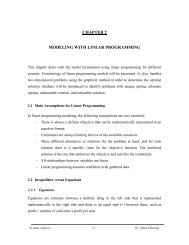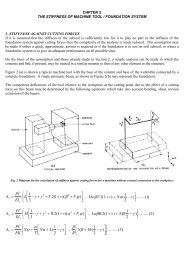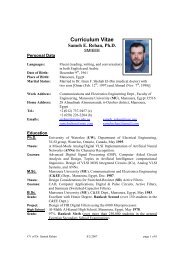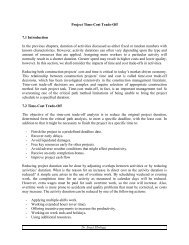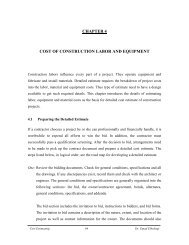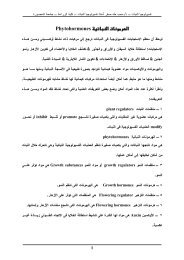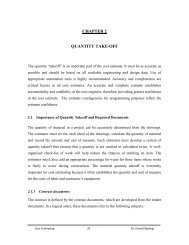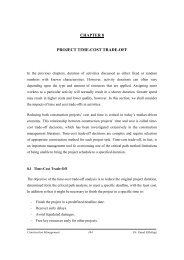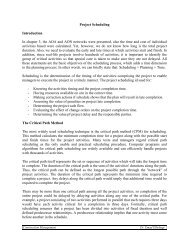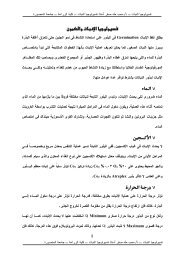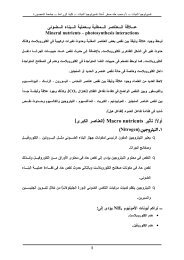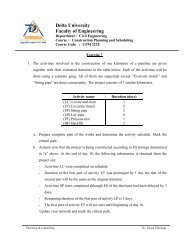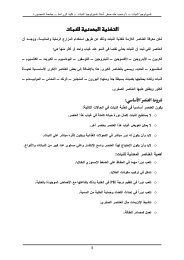Thyroid and Parathyroid
Thyroid and Parathyroid
Thyroid and Parathyroid
You also want an ePaper? Increase the reach of your titles
YUMPU automatically turns print PDFs into web optimized ePapers that Google loves.
condition is iodine deficiency. It is most commonly encountered in mountainous areas<br />
where the iodine content of drinking water is particularly low. Most countries<br />
throughout the world have had one or more areas where endemic goiter was<br />
encountered; in the United States it was formerly in the Midwestern mountainous<br />
regions. Administration of iodine, usually as an additive in table salt, has proved<br />
. successful as a prophylaxis in reducing the incidence of this condition<br />
Sporadic Goiter<br />
Sporadic goiter is the term given to a goiter for which no definitive cause can be<br />
established. It excludes goiters caused from thyroiditis <strong>and</strong> neoplasia as well as<br />
. endemic goiter<br />
Pathology<br />
The thyroid gl<strong>and</strong> may be diffusely enlarged <strong>and</strong> smooth, or enlarged <strong>and</strong> markedly<br />
nodular. In the early stages of the disease, the gl<strong>and</strong> may be hyperplastic <strong>and</strong> diffusely<br />
enlarged, a condition that may be reversed by the administration of iodine or thyroid<br />
hormone. Nontoxic nodular goiter is a multinodular gl<strong>and</strong> in which the nodules vary<br />
considerably in size <strong>and</strong> number. Nodules are filled with gelatinous, colloid-rich<br />
material, <strong>and</strong> scattered between nodules are areas of normal thyroid tissue. Gross or<br />
microscopic cyst formation may be present, with evidence of degeneration,<br />
. hemorrhage, <strong>and</strong> calcification<br />
Clinical Manifestations<br />
Most patients with goiters are asymptomatic. The most common symptom is a<br />
sensation of pressure in the neck coupled with a mass. If the goiter enlarges<br />
significantly, patients may complain of compressive symptoms such dysphagia or<br />
dyspnea. Paralysis of a recurrent laryngeal nerve is rare <strong>and</strong> should raise the suspicion<br />
of malignancy. On occasion a recurrent laryngeal nerve is stretched over a rapidly<br />
enlarging thyroid nodular cyst <strong>and</strong> ceases to function. Goiters may extend into the<br />
thorax <strong>and</strong> become retrosternal (Fig. 36-17), which may be associated with an<br />
impedance of venous return in the jugular veins (Fig. 36-18) <strong>and</strong> consequent facial<br />
flushing. Such flushing is accentuated by the patient's raising his or her arms above<br />
the head (positive Pemberton's sign). Sudden pain, frequently associated with rapid<br />
enlargement of the thyroid gl<strong>and</strong>, usually is related to hemorrhage into a colloid<br />
. nodule or cyst<br />
Examination reveals a diffusely enlarged, soft thyroid goiter in patients with simple<br />
goiter or an enlarged gl<strong>and</strong> with nodules of varying size <strong>and</strong> firmness in multinodular<br />
goiter (Fig. 36-19). In patients in whom one nodule predominates, or is painful, or has<br />
recently enlarged, FNAC is recommended because it is sensitive <strong>and</strong> specific in the<br />
. diagnosis of colloid nodule<br />
Results of laboratory investigations usually are normal, although in patients over the<br />
age of 60 years with long-st<strong>and</strong>ing multinodular goiters (>17 years), a significant<br />
number develop thyrotoxicosis (Plummer's disease). Most of these hyperthyroid<br />
.( patients have a suppressed TSH <strong>and</strong> increased T3 level but normal T4 (T3toxicosis<br />
Treatment<br />
Most euthyroid patients with small, diffuse, simple goiters need no treatment. If the<br />
goiter is of significant size, treatment with thyroxine may depress TSH stimulation of



